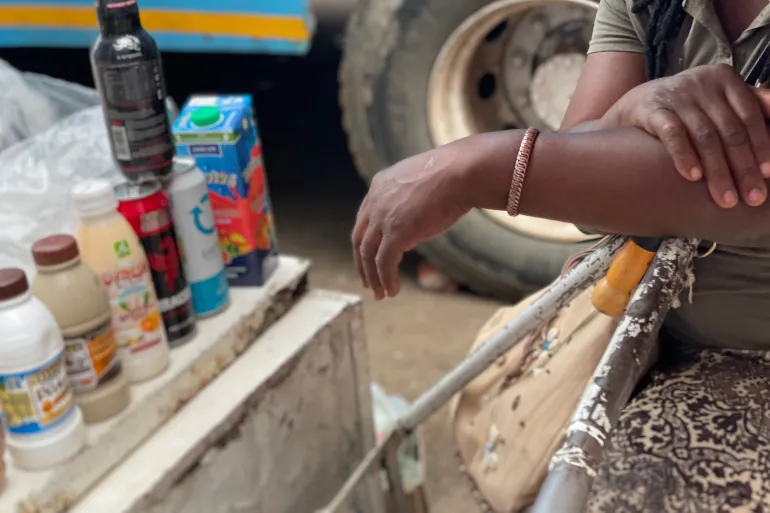In Zimbabwe, a complex reality plays out daily in the bustling streets of cities like Harare and Bulawayo. Amid the hustle and bustle, a cat-and-mouse game unfolds between government workers and authorities as many civil servants are moonlighting as street vendors. This phenomenon reflects not only economic hardship but also the resilience of individuals trying to make ends meet in a struggling economy.
The economic landscape of Zimbabwe has been tumultuous for decades, characterized by hyperinflation, unemployment, and a declining formal sector. Many Zimbabweans, including government employees, find themselves facing the harsh realities of a crumbling economy. A government worker’s paycheck often proves insufficient to support a family, especially with rising costs of living, leading many to seek alternative sources of income.
In the heart of the city, one can spot government employees transitioning into street vendors after their official working hours. This often involves setting up makeshift stalls or selling goods directly to pedestrians. These workers typically sell items ranging from fruits and vegetables to handmade crafts, reflecting the local demand and their ingenuity to adapt to circumstances.
For many, this clandestine shift allows them not only to survive but to thrive. Street vending presents an opportunity for flexibility and the potential to earn much more than a stagnant government salary. Some vendors have reported earning several times their official salary in a single day of street selling, showcasing the stark contrast between formal employment and the informal economy.
However, this double life is not without its challenges. Government workers engage in street vending at significant personal risk. The authorities, aware of this informal sector boom, frequently carry out raids to displace vendors from the streets. These operations can be sudden and aggressive, often leaving vendors scrambling to hide their goods and set up in less conspicuous locations. For civil servants, getting caught moonlighting can lead to disciplinary actions, risking their job security in a sector where employment is already precarious.
The government’s stance on street vending is paradoxical. While it acknowledges the economic realities and the role of informal markets in providing goods and services, it also perceives unregulated vending as a threat to public order and hygiene. Consequently, this creates a tense dynamic where government workers must navigate the precarious balance of fulfilling their official duties while engaging in an activity deemed illegal by their employers.
This cat-and-mouse game extends beyond individual vendors; it raises broader questions about governance and economic policy in Zimbabwe. The persistence of this informal economy signals a failure of the formal sectors to provide adequate livelihoods. Instead of penalizing those caught in this cycle of survival, it would be more prudent for the government to consider integrating informal vendors into the formal economy, promoting job security and regulatory frameworks that allow for legal trading spaces.
Community leaders and economists have begun advocating for policies that acknowledge the contribution of street vending to the economy. Initiatives such as designated vendor zones, permits, and support for small businesses could formalize this sector, ensuring that government workers can earn a living without fear of reprisal.
As Zimbabwe navigates its economic challenges, the stories of government workers moonlighting as street vendors highlight the deep-seated issues within the country. It’s a reminder that beneath the surface of bureaucracy lies a population resilient in the face of adversity, creatively adapting to survive. Ultimately, addressing these realities calls for a policy shift that recognizes the valuable role of informal markets in the economy and the necessity for government workers to find dignity in every means of earning a living.
Email Us on editorial@nnafrica.com













